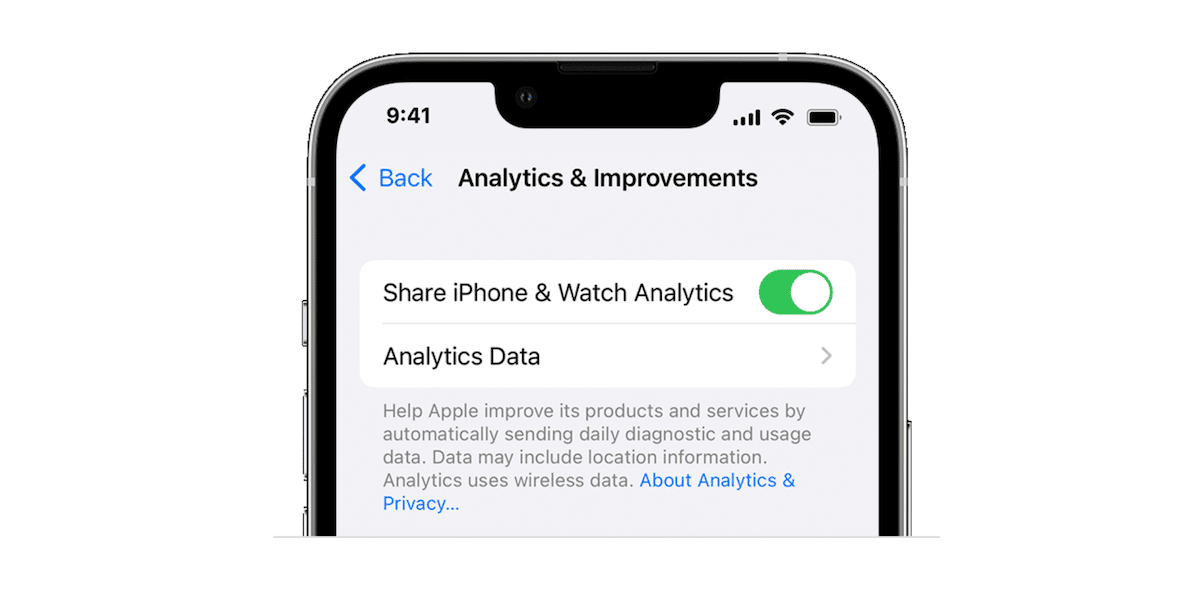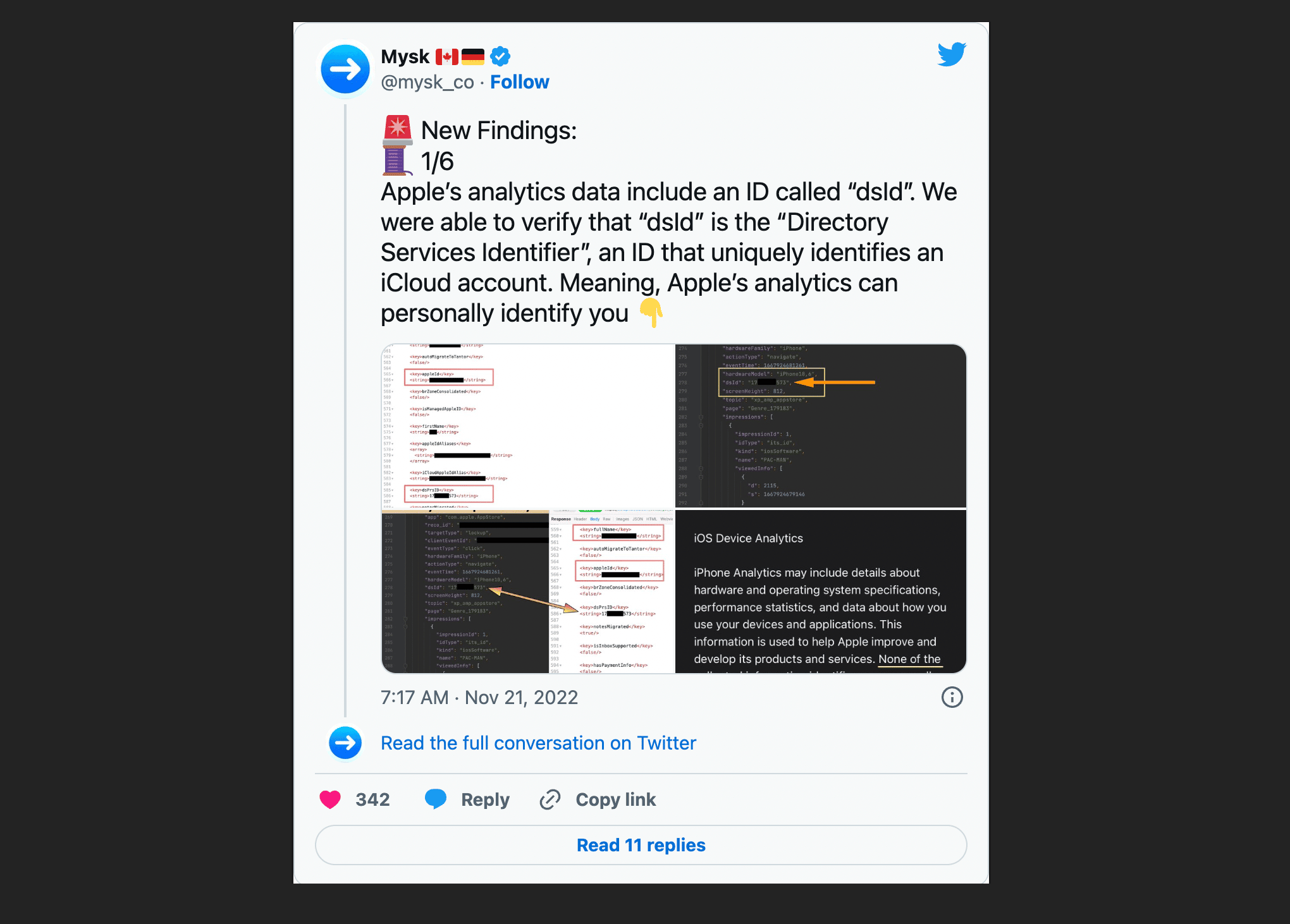Cyber security researchers from Mysk have found that Apple Device Analytics and Privacy contain users’ personally identifiable information like their name, email, and other details directly linking to a specific user.

Device Analytics is an opt-in feature that lets users share details about hardware and operating system specifications, data about how the device and apps are used, and performance statistics with Apple. The company states that the collected data is not identifiable even if users choose to Analytics from multiple devices.
None of the collected information identifies you personally. Personal data is either not logged at all, is subject to privacy preserving techniques such as differential privacy, or is removed from any reports before they’re sent to Apple.
If you agree to send Analytics information to Apple from multiple devices that use the same iCloud account, we may correlate some usage data about Apple apps across those devices by syncing using end-to-end encryption. We do this in a manner that does not identify you to Apple.
Apple Device Analytics data includes a ” Directory Services Identifier” linked to a specific user
Previously, Mysk researchers discovered that the tech giant was tracking users’ App Store activity without their consent and knowledge. A practice that blatantly goes against the company’s privacy policy of protecting users’ personal information and preventing invasive tracking.
Now, they have found that its Device Analytics data includes a unique ” Directory Services Identifier (dsId) to every iCloud account and can be linked to a specific user with their name, email, date of birth, and information saved on iCloud.

This raises huge privacy concerns. Mysk writes:
It is worth noting that the DSID is also sent by other Apple apps for analytics purposes.
You just need to know three things:
1- The App Store sends detailed analytics about you to Apple
2- There’s no way to stop it
3- Analytics data are directly linked to you
Apple is already facing a class action lawsuit on the researchers’ earlier findings of its breach of users’ privacy.
The tech giant introduced the App Tracking Transparency (ATT) feature on iOS to prevent apps from tracking users’ online activity across third-party apps and websites without their consent. The privacy feature has drastically impacted social platforms’ revenue like Facebook, Snapchat and others,